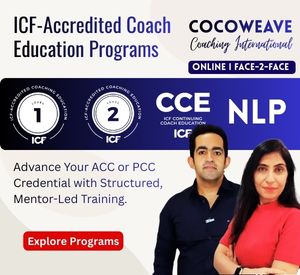We can all enhance our coaching by discovering the time-honored practices of Socratic dialogue. Executive coaching may appear like a 21st-century phenomenon, but it owes a surprising debt to ancient practices. Yes, coaching practices have a lot to thank Socrates for, particularly in the way we ask powerful questions! By getting into the nitty-gritty of Socratic dialogue, coaches can guide their clients toward better self-awareness, improved critical thinking and problem-solving skills, and meaningful personal growth.
The Socratic Method is all about guiding people to explore their thoughts and beliefs through structured questions. It’s a non-judgmental and exploratory process that aims to clarify thoughts, critically examine beliefs, and consider other perspectives. This approach is rooted in respectful curiosity and collaborative empiricism, where both coach and client engage in a mutual search for understanding without any predefined outcomes. The idea is to ensure both parties understand the thoughts being discussed, analyze their validity, explore where they came from, understand their implications, and consider different viewpoints. This helps clients get a better handle on their mental and emotional landscapes, paving the way for personal development and behavioral change.
Modern coaching has taken these Socratic principles and run with them, especially through the use of powerful questions. These questions provoke deep reflection, stimulate insight, and encourage clients to explore new ways of thinking and acting. The key is to ask open-ended questions that require expansive, thoughtful responses rather than simple yes or no answers. Tailoring questions to the client’s specific context and goals ensures they are relevant and meaningful, promoting deeper engagement.
Encouraging clients to consider various possibilities and perspectives is crucial. This means prompting them to question their assumptions and consider alternative views. Questions like, “What evidence supports this belief?” can lead to significant breakthroughs. Also, focusing on future-oriented thinking helps clients envision their desired outcomes and the steps needed to achieve them, fostering a proactive mindset.
Timing is everything. Introducing questions at the right moment, when the client is ready to engage deeply, ensures the dialogue is productive. Building a safe, trusting environment is essential for clients to explore their thoughts honestly. Giving them time to reflect after asking questions ensures their responses are well-considered and meaningful.
Understanding and integrating Socratic dialogue into coaching practices can significantly boost the effectiveness of coaching sessions. Socratic questioning encourages clients to dig deeper into their thoughts and beliefs, leading to greater self-awareness and insights that might not come out through more superficial questioning. It also promotes critical thinking, helping clients navigate challenges and make informed decisions by examining the origins and validity of their thoughts.
Exploring alternative views and the implications of current beliefs can motivate clients to adopt new, more productive behaviors and attitudes. This approach empowers clients by positioning them as experts in their own experiences, fostering a sense of ownership over their personal development. The non-judgmental, exploratory nature of Socratic dialogue helps build a strong, trusting relationship between coach and client, which is essential for effective coaching.
Clarifying thoughts and examining their implications also help clients align their actions with their goals and values, leading to more coherent and purposeful progress. Incorporating the nuances of Socratic dialogue into coaching practices not only enriches the coaching process but also aligns with contemporary understandings of effective, client-centered coaching. Coaches who master these techniques are better equipped to guide their clients through complex personal and professional challenges, ultimately fostering a more profound and lasting impact.
In short, integrating Socratic practices into modern coaching is not just beneficial but essential for fostering a deeper connection and understanding between coach and client. By adopting these age-old techniques, coaches can facilitate significant personal growth and development, empowering clients to navigate their journeys with greater clarity and confidence. For those interested in diving deeper, resources such as the Staff Perspective on Cognitive Processing Therapy and the Use of Socratic Dialogue/Questioning and this article on Positive Psychology can be helpful in applying timeless Socratic techniques in modern practice.
Disclaimer
The views and opinions expressed in guest posts featured on this blog are those of the author and do not necessarily reflect the opinions and views of the International Coach Federation (ICF). The publication of a guest post on the ICF Blog does not equate to an ICF endorsement or guarantee of the products or services provided by the author.
Additionally, for the purpose of full disclosure and as a disclaimer of liability, this content was possibly generated using the assistance of an AI program. Its contents, either in whole or in part, have been reviewed and revised by a human. Nevertheless, the reader/user is responsible for verifying the information presented and should not rely upon this article or post as providing any specific professional advice or counsel. Its contents are provided “as is,” and ICF makes no representations or warranties as to its accuracy or completeness and to the fullest extent permitted by applicable law specifically disclaims any and all liability for any damages or injuries resulting from use of or reliance thereupon.
Authors
Post Type
Blog
Audience Type
Coach Educators, Experienced Coaches, External Coaches, ICF Chapter Leaders, Internal Coaches, New Coaches, Professional Coaches, Team and Group Coaches
Topic
Coaching Toolbox, Discover - Your Coaching Career
Related Posts
The Power of Active Listening in Meaningful Coaching: Why Active Listening is the Most Essential Coaching Competency
Of all the foundational coaching competencies identified by the International Coaching Federation…
Allyship in Action: Coaching as a Catalyst for Change
Allyship is often framed as a value or an intention. In practice,…
Grace Under Fire: Building Stress Resilience for Coaches and High Achievers
There’s a unique kind of pressure that lives at the intersection of…







